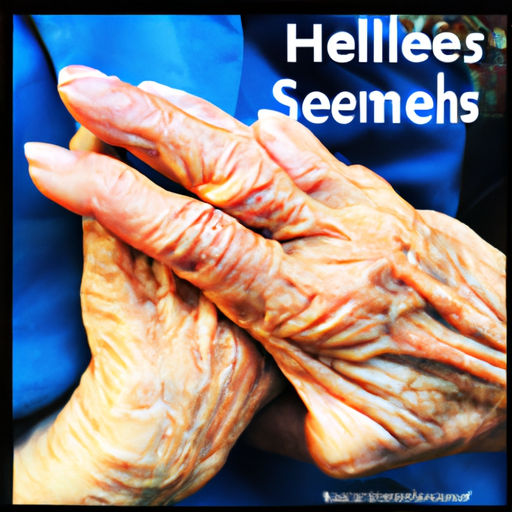Imagine a world where the golden years are anything but golden. Where the wisdom and experience of our elders are overshadowed by a growing epidemic of homelessness among seniors. Unfortunately, this is the harsh reality we face today. The number of homeless seniors is on the rise, and the future looks even bleaker. Recessions, a weak social safety net, and a shortage of affordable housing are all contributing factors to this alarming trend. As if that weren’t enough, older homeless individuals also face unique challenges in finding work and securing stable housing. To add insult to injury, there is a disproportionate representation of people of color among the homeless population. The rise in elderly homelessness can be attributed to weak social safety nets, mass incarceration policies, and insufficient affordable housing. This crisis not only takes a toll on individuals’ health but also leads to lower life expectancies. It’s time we face this issue head-on and find solutions to give our seniors the dignity and security they deserve.
Factors contributing to the increasing number of homeless seniors
Recessions
One of the factors that has contributed to the increasing number of homeless seniors is the occurrence of recessions. During economic downturns, many individuals, including older adults, may lose their jobs or experience financial hardships that eventually lead to homelessness. Recessions can result in layoffs, reduced working hours, or even businesses shutting down, leaving older workers with limited options for finding new employment or sustaining their current lifestyles.
Lack of a strong social safety net
Another factor that has contributed to the increasing number of homeless seniors is the lack of a strong social safety net. A robust social safety net refers to the provision of various government programs and initiatives aimed at assisting vulnerable populations, including older adults, during times of need. Without an adequate social safety net, seniors who encounter financial difficulties or housing instability may have limited access to resources that could help them avoid becoming homeless. This can leave them vulnerable and without the necessary support systems to exit homelessness.
Shortage of affordable housing
A shortage of affordable housing is a significant contributor to the increasing number of homeless seniors. Many older adults face challenges in finding housing that is affordable on their limited incomes, particularly in areas with high housing costs. Limited availability of affordable housing options, coupled with rising rents, can make it difficult for seniors to secure and maintain stable housing. As a result, they may be forced into precarious living situations, including homelessness.
The average age of homeless populations
The average age of homeless populations has been rising over the past four decades. This trend is concerning, as it indicates that more seniors are experiencing homelessness at a time when they should be enjoying a secure and comfortable retirement. The increase in the average age of homeless populations suggests that older adults are more at risk of losing their housing and face unique challenges when it comes to finding affordable, safe, and stable accommodations.

Challenges faced by older homeless individuals
Difficulty in finding work
One significant challenge faced by older homeless individuals is the difficulty in finding work. Older adults may encounter age discrimination in the job market, making it challenging for them to secure employment opportunities that could help them transition out of homelessness. Additionally, health issues, lack of relevant skills or education, and competition from younger, more experienced job seekers can further hinder their chances of finding stable employment. This creates a cycle where older homeless individuals struggle to find work, which then makes it harder for them to secure permanent housing.
Securing stable housing
Another challenge faced by older homeless individuals is the difficulty in securing stable housing. As mentioned earlier, the shortage of affordable housing is a significant contributing factor to the increasing number of homeless seniors. Older adults who are already homeless face additional barriers to securing stable housing, such as limited income, health issues, and the stigma associated with homelessness. These barriers make it challenging for older homeless individuals to find housing options that meet their needs, leaving them vulnerable to ongoing homelessness.
Disproportionate representation of people of color among the homeless population
Another concerning trend within the homeless population is the disproportionate representation of people of color, including seniors. Structural inequities, systemic racism, and socioeconomic disparities contribute to this disproportionate representation. People of color, including older adults, may face additional barriers in accessing affordable housing, job opportunities, and social safety net programs, which can increase their risk of homelessness. Addressing these systemic issues and promoting equity in housing and support services is crucial in addressing the high prevalence of homelessness among people of color, including seniors.

Factors attributing to the rise in elderly homelessness
Weak social safety nets
As mentioned earlier, the lack of a strong social safety net plays a significant role in the rise of elderly homelessness. Insufficient access to affordable healthcare, income support programs, and assistance with housing expenses can leave older adults vulnerable to homelessness when they face financial hardships or housing instability. Strengthening the social safety net can help prevent seniors from falling into homelessness and provide them with the support they need to maintain stable housing and well-being.
Mass incarceration policies
Mass incarceration policies also contribute to the rise in elderly homelessness. Older adults who have previously been incarcerated face challenges in reintegrating into society, finding employment, and securing stable housing. These challenges, combined with limited access to supportive services during reentry, can increase the risk of homelessness among formerly incarcerated seniors. Addressing mass incarceration and providing adequate support and resources for reintegration can help prevent homelessness among this vulnerable population.
Insufficient affordable housing
The shortage of affordable housing continues to be a significant contributing factor to the rise in elderly homelessness. Older adults often have limited incomes, relying on fixed retirement benefits or social security, which make it challenging for them to afford market-rate housing. Insufficient affordable housing options, particularly for seniors, force them to make difficult choices between paying for housing, healthcare, or other basic needs. Expanding affordable housing initiatives targeted specifically towards older adults can help address this issue and reduce the risk of homelessness among seniors.
The burden of homelessness on seniors’ health
Experiencing homelessness takes a severe toll on seniors’ health, leading to lower life expectancies. Homeless seniors face numerous health challenges resulting from exposure to harsh living conditions, lack of access to proper healthcare, and poor nutrition. Without stable housing, they may be more susceptible to chronic illnesses, mental health disorders, and physical injuries. The stress and uncertainty of homelessness can exacerbate existing health conditions and lead to the development of new ones. The burden of homelessness on seniors’ health highlights the urgent need for comprehensive support services, including healthcare, to address their unique health needs and improve outcomes.
In conclusion, the increasing number of homeless seniors is a pressing issue that requires attention and action. Factors such as recessions, lack of a strong social safety net, and a shortage of affordable housing contribute to this concerning trend. Older homeless individuals face challenges in finding work and securing stable housing, and people of color are disproportionately represented among the homeless population. Factors attributing to the rise in elderly homelessness include weak social safety nets, mass incarceration policies, and insufficient affordable housing. The burden of homelessness on seniors’ health further emphasizes the need for comprehensive support services. Addressing these factors and implementing targeted strategies to prevent and end homelessness among seniors is crucial for ensuring their well-being and dignity in their later years.



